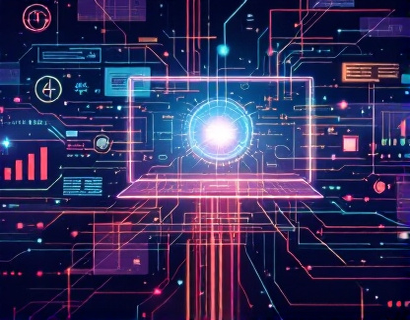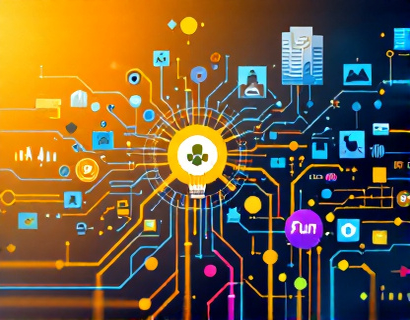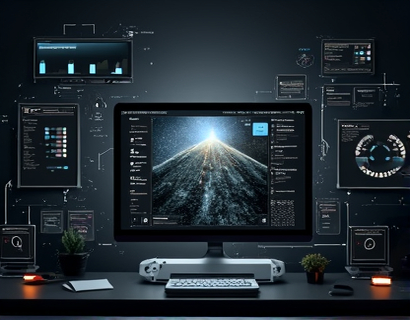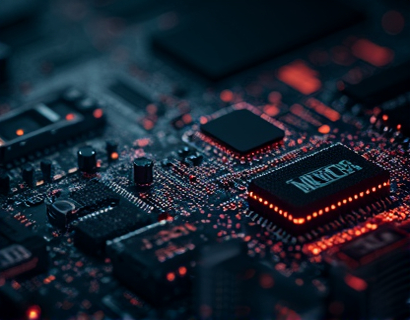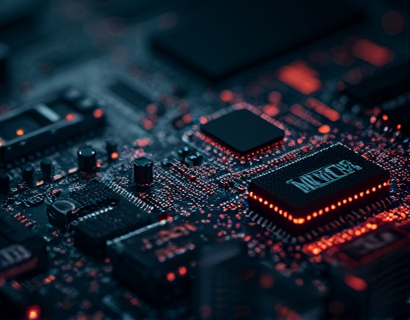Next-Gen Multi-Login Security: Simplify Digital Life with Advanced Online Authentication
In the digital age, managing multiple online identities has become a daunting task for tech-savvy individuals. The need for robust security measures that do not compromise on convenience is more critical than ever. This article delves into the realm of next-generation multi-login security solutions, exploring how advanced online authentication can streamline your digital life while ensuring your credentials remain safe and accessible. By leveraging cutting-edge technology, these solutions offer a balance between security and simplicity, making them ideal for those who value both aspects in their online experiences.
The traditional method of remembering and managing numerous usernames and passwords for different platforms is not only cumbersome but also risky. A single breach can expose multiple accounts, leading to significant security vulnerabilities. To address this, innovative online software solutions have emerged, designed to securely manage multiple logins across various websites. These tools not only enhance online security but also simplify the process of accessing your accounts, providing a seamless and secure digital experience.
One of the key features of these advanced authentication systems is multi-factor authentication (MFA). MFA adds an extra layer of security by requiring more than one method of verification to access an account. This could include something you know, like a password, something you have, such as a smartphone or security token, and something you are, like biometric data. By combining these factors, MFA significantly reduces the risk of unauthorized access, even if one layer of security is compromised.
Another critical aspect of next-gen multi-login security is the use of secure tokens and cryptographic techniques. These methods ensure that your credentials are encrypted both in transit and at rest, making it extremely difficult for hackers to intercept or decode them. Secure tokens, often generated through algorithms, provide a unique and time-bound access key for each session, further enhancing security. This approach not only protects your data but also ensures that even if a token is compromised, it remains valid only for a short period, limiting potential damage.
User experience is a paramount concern for these advanced authentication solutions. A user-friendly interface is essential to encourage adoption and ensure that users feel comfortable and confident in using the system. Intuitive design elements, clear instructions, and seamless integration with existing platforms make these tools accessible to users of all technical backgrounds. This focus on usability ensures that security does not come at the cost of convenience, a common trade-off in traditional security measures.
Session management is another crucial feature of these solutions. By intelligently managing user sessions, these systems can automatically log users out after a period of inactivity or when switching devices, reducing the risk of unauthorized access. Additionally, session tokens can be designed to be device-specific, ensuring that an account accessed from an unfamiliar device triggers additional verification steps. This dynamic approach to session management enhances security without sacrificing user convenience.
The integration of artificial intelligence (AI) and machine learning (ML) further elevates the security and efficiency of these multi-login systems. AI algorithms can analyze user behavior patterns to detect anomalies and potential threats in real-time. For instance, if a login attempt is made from a location or device that is unfamiliar to the system, it can flag this activity for further review or automatically prompt additional verification. ML models continuously learn from new data, improving the system's ability to distinguish between legitimate and malicious activities over time.
Identity verification is another area where these solutions excel. Beyond traditional password-based authentication, they incorporate advanced biometric methods such as fingerprint scanning, facial recognition, and voice recognition. These biometric techniques provide a higher level of security and convenience, as users do not need to remember complex passwords or carry physical tokens. The accuracy and reliability of modern biometric sensors make them a trusted component of next-gen authentication systems.
To ensure comprehensive protection, these multi-login security solutions often include features like password managers and secure vaults. Password managers generate and store complex, unique passwords for each account, eliminating the need for users to create and remember multiple passwords. Secure vaults go a step further by allowing users to store sensitive documents and notes, all encrypted and accessible only through the authentication system. This holistic approach to security ensures that all aspects of a user's digital life are protected.
Scalability is another important factor for these advanced authentication systems. As users add new accounts or devices, the system should seamlessly accommodate these changes without compromising performance or security. Cloud-based solutions are particularly advantageous in this regard, as they can scale resources dynamically to handle increased loads and provide consistent performance regardless of the number of logged-in sessions.
Compliance with industry standards and regulations is also a key consideration for these security solutions. Adherence to standards such as ISO 27001, PCI DSS, and GDPR ensures that the system meets rigorous security and privacy requirements. This not only protects users but also provides peace of mind for businesses and organizations that handle sensitive data.
The implementation of these next-gen multi-login security solutions can significantly reduce the risk of security breaches and simplify the user experience. For tech-savvy individuals, these tools offer a robust and convenient way to manage their online identities. By leveraging advanced authentication methods, these solutions provide a balance between security and usability, addressing the dual concerns that often plague traditional security approaches.
In conclusion, the future of online authentication is moving towards more intelligent, user-friendly, and secure systems. By embracing these advanced technologies, individuals can enjoy a simplified and secure digital life, free from the hassles of managing multiple passwords and the constant threat of security breaches. As these solutions continue to evolve, they will play a crucial role in shaping the next generation of online security.





